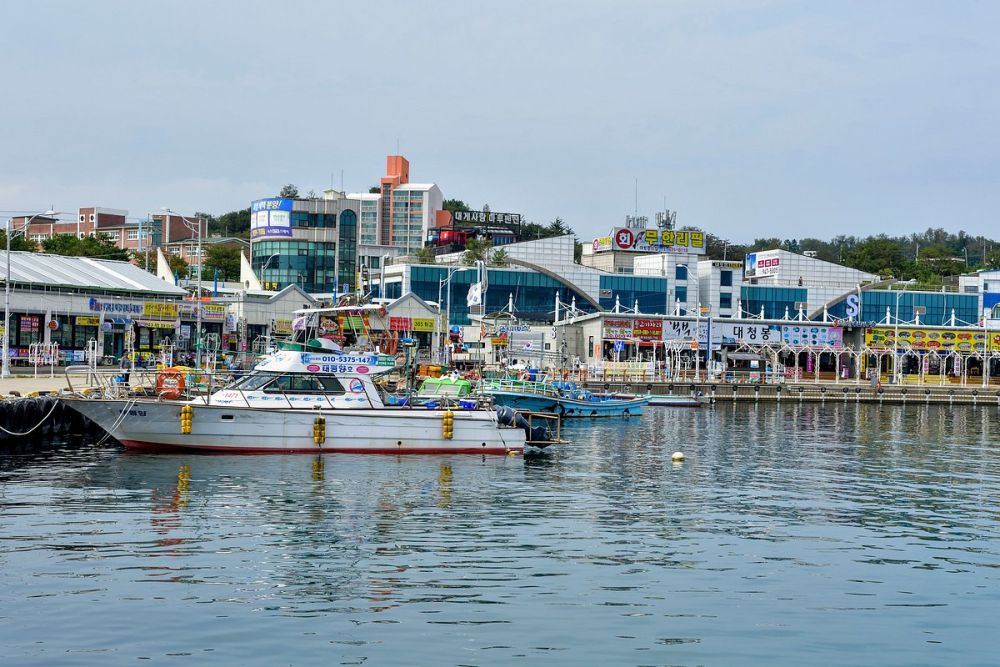

In the eastern coastline of South Korea, nestled by the magnificent Sea of Japan, or the East Sea as known domestically, lies the bustling Daepo Port of Sokcho. A city famed for its natural beauty and proximity to the Seoraksan National Park, Sokcho is a haven for tourists.
Sokcho's tourism history can be traced back to the rapid development of South Korea post the Korean War. During the 1960s and 1970s, the area witnessed a burgeoning interest in its natural landscapes and cultural offerings. However, it was the designation of Seoraksan National Park in 1970, just west of Sokcho, that truly catalyzed the influx of tourists to the region.
Originally a modest fishing village, Daepo Port rapidly transformed into a key player in local tourism. Visitors were initially drawn to the port as a gateway to the freshest seafood, but soon, the panoramic views of the ocean and the unique experiences offered by the port itself became additional draws.
The modern era has brought about significant developments in and around Daepo Port, further cementing its status as a tourist destination. The construction of the Sokcho Expo Tower and the Sokcho Marine Cable Car are examples of infrastructure upgrades that have enhanced the tourism appeal of the region. The port today is famous for its seafood market, the Daepo Fish Market, where the day's fresh catch becomes an interactive culinary adventure for visitors.
The latest tourism trend circling Daepo Port leverages the overarching global movement towards ecotourism and immersive cultural experiences. The region's offerings have expanded to include eco-friendly tours of the nearby national park, temple stays, and cultural festivals that celebrate the unique heritage of Sokcho and Korea as a whole.
Korean Popular Culture, also known as the Hallyu wave, has had a profound impact on increasing international interest in South Korean destinations, including Sokcho and Daepo Port. This phenomenon has introduced Korean cuisine, drama, and music to a global audience, who are now eager to experience the culture firsthand.
Despite the steady growth in tourism, Daepo Port and Sokcho face challenges such as ensuring sustainable tourism practices that protect the natural environment and local communities. Looking to the future, Sokcho aims to strike a balance between embracing modernity and preserving the charms that draw travelers to its shores. The city continues to push forward initiatives aimed at enhancing tourist facilities while safeguarding the heritage and natural beauty that define Daepo Port.
In conclusion, the history of tourism in Daepo Port is one of transformation, from a simple fishing outpost to a prominent symbol of South Korea's allure as a global travel destination. Its trajectory continues to inspire a commitment to the environment, culture, and economic prosperity that tourism can bring.